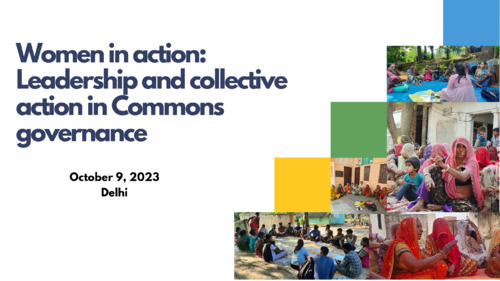Women in action: leadership and collective agency in commons governance
Abstract
The session aims to bring out voices from the community-lived experiences and leadership journeys of women leaders through a qualitative study. Focusing on the dynamics between individual leadership and collective agency, this study explores the enabling and hindering factors to women’s leadership, motivations for rural Indian women to take up leadership roles and the role of leadership in enhancing the collective agency of women. Through personal interviews and focus group discussions in 15 villages across four Indian states, it finds that women’s leadership can lead to gender equality and social inclusion by improving women’s participation in decision-making across local institutions, including those for the management of common pool resources. The lived experiences of women leaders point to the role of women’s collectives as their key motivation and their leadership journeys bear testimony to their contribution in supporting these collectives. The study, carried out in varied socio-economic contexts and with women leaders of various caste and ethnic backgrounds, highlights the qualities required for leadership for social change, the challenges faced and the processes leading to effective leadership. Literature suggests that membership of an organization boosts the confidence of women, enabling them to voice their concerns and influence decisions in mixed groups, as well. This research adds to and furthers the understanding of women’s transformative leadership, thus helping to design strategies that support and enable more women to take on formal and informal leadership roles, in order to move towards gender-inclusive and transformative institutions at local levels.

